Educate children through direct experiences | Part 20
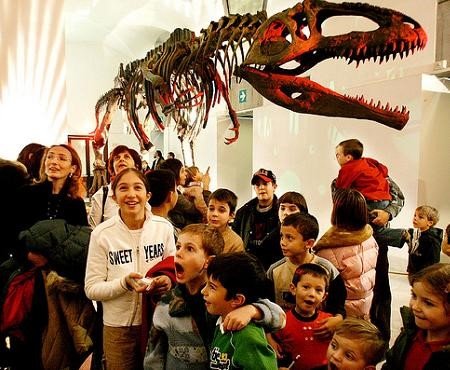
Direct experiences allow the acquisition of knowledge and habits, managing to develop an autonomous attitude and favoring cognitive abilities.
These experiences offer adequate tools to enrich the stimuli, where they become spectators, main actors and executors. Students are the protagonists of their own learning, taking responsibility for their behavior.
Direct experience in the dinosaur museum.
Museums become an ideal space for learning, since they contain an innumerable dose of culture that contributes to the formation of students.
This experience takes us back to the time of the dinosaurs, offering necessary educational knowledge in the process of intellectual development, keeping alive the curiosity to learn, also becoming something positive for them.
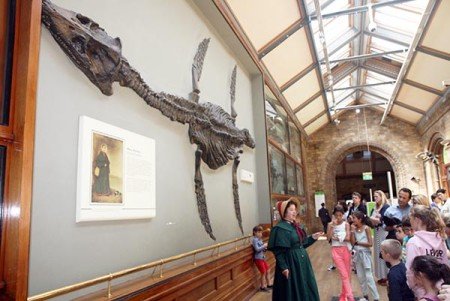
Knowing, learning and living directly from this extraordinary experience will allow us to know what dinosaurs were like, how they evolved, how they fed, what family they belonged to and how they became extinct over time.
Objectives of the direct experience in the museum.
- Encourage a learning process, combining theory with practice.
- To be able to enjoy through an educational resource.
- Awaken the curiosity to learn.
- Contribute to the development of cognitive skills.
Function that the educator must exercise for the exit to the museum.
The educator must plan, be a great group leader, so that the attention of the students is captured throughout the tour in the museum, and in this way they do not tend to get bored, because this would be discouraging.
Being the one in charge, requires making the experience enrich the knowledge and, at the same time, enjoy it. It is extremely important to explain that the group should always remain united, pay attention to the guides of the museum, comply with the rules so that the tour is as expected.
Learning and fun activities in the dinosaur museum.
It is intended that the students in an experiential and real way, understand as future professionals, the importance of knowledge and the strengths that are developed by getting in touch with reality.
Activities in the museum:
Display of large predators. Students will know that not only were there harmless and herviborous creatures, but there was also a wide variety of predatory and carnivorous species, such as: he Tyrannosaurus rex.
Birth of the dinosaurs. Students will have the opportunity to witness in an interactive and fun way, as the great dinosaurs came to life, understanding that they come from an egg and that their size was small and was increasing as that time passed, as happens with man, who matures and becomes someone with strength and thought of his own.
Skeletons on display to learn. There will be a detailed observation of the skeletons and replicas, in real size of the impressive dinosaurs that took place in the Jurassic period, verifying the measures that they had, from the head to the end of their tails.
The search for fossils. It is a motivating activity that allows you to discover and acquire knowledge. They can search for fossils, in a predetermined area to perform the functions of a paleontologist. Carry out excavations where they will be able to: observe, clean and collect different types of fossils.
Students will be provided everything necessary to carry out their work successfully. Materials: rakes, shovels, registration form, in this way you can catalog the pieces. Learning what kind of animal it was.
Activities to do in the classroom after the direct experience in the museum.
It is important to stimulate through activities, so that they want to learn and discover what education has to offer. The educator has the duty to ask after each experience, if: Has it been to your liking to have a contact with reality?, and even make dynamic classes that demonstrate that enjoyment also served to increase learning.
Example of activities:
- Exhibits about dinosaurs and the Jurassic period.
- Exhibition of works of art, such as: drawings of the different species discovered. So that the creativity increases.
- Make representative models, and explain the characteristics of each species of those that are already extinct. These jobs can be done with recycling material.
The importance of these tasks in the classes lies in continuing to investigate, so as not to lose the enthusiasm to learn something new every day.
Greetings educators and motivators of education.
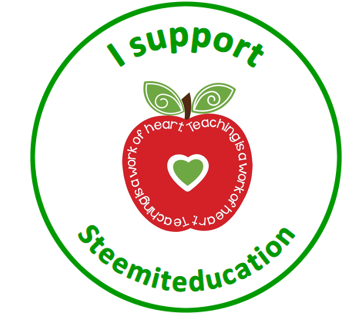
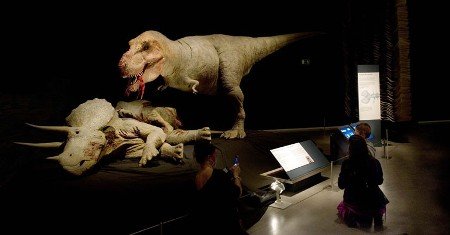
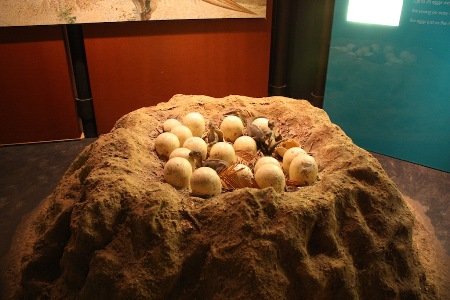


Hi, Cindycam great work, I can feel your energy and love, thanks for sharing.
Hello, thank you very much, it is a pleasure to contribute in some way with educational content that you will have the opportunity to carry out.
Excellent publication. Good job
Hello, thank you very much I hope that the students and children enjoy and learn with this kind of experiences.
Excellent post, art is always a good tool for learning.
Hello, yes, thank you very much, regardless of the type of content, what matters is that it is important for development.